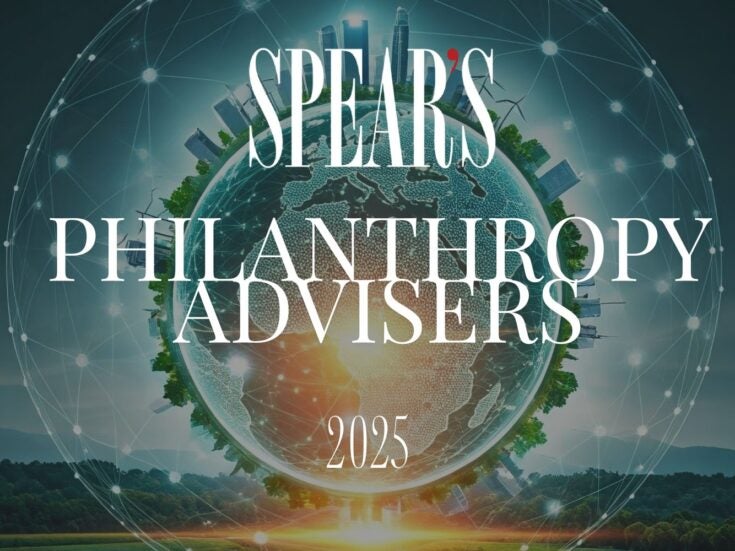The lawsuits and the investigations may recast the entire fiasco in a new light and repair US-UK relations on the oil spill.
In Spanish we have a saying: “De árbol caído se hace leña” — roughly: “A fallen tree gets made into firewood.” No doubt BP can empathize as it’s nicked and hacked from every angle.
First there was the horrific oil spill and the PR nightmare for the company, then the congressional hearings, the global vilification of its CEO Tony Hayward, then the cancellation of its dividend payments and the $20 billion fund for which US Rep. Joe Barton of Texas apologized to BP then apologized for his apology. Now come the lawsuits and the investigations.
Oddly enough, it’s the latter two that may recast the entire fiasco in a new light and repair US-UK relations on the oil spill.
When I was in the UK earlier this week, not a single Brit could understand the extent of American rage over the spill. “Suddenly, we’re British Petroleum, when BP has more workers in the US than in the UK and the board of directors is half American. It’s so unfair!” they bemoaned as British newspaper headlines screamed their outrage at Obama’s cleanup fund “extortion” and spread wild panic that British pensioners would starve if their BP dividends were cancelled. “How could the US do this to us?” complained a friend. “First they drag us into that bloody Iraq War, and now this?!”

Interesting conflation of topics and total abrogation of national or personal responsibility. I just smiled and said: “You guys simply cannot fathom American rage over the spill. It’s far far worse than you imagine.”
Well, true, but something tells me that rage is about to move and morph.
First, there is yesterday’s NY Times article exposing how in the wake of the moratorium on offshore drilling caused by BP’s Deepwater Horizon catastrophe, BP is the only company being allowed to pursue an even riskier offshore drilling project in Alaska, in a project quaintly called Liberty.
How is this possible? Easy: BP built its very own gravel island to qualify it as onshore. Much more shocking: how in bed the regulators are with BP.
Despite the fact that the engineering of the risky Liberty project is so unprecedented and untested that BP had to spend $200 million on a custom-made drill for it, the regulators allowed BP to write their own environmental reviews and then adopted them verbatim.
So, yes, BP’s behavior is shocking and greedy, but so is that of the regulators. In fact, even more so, because while BP has been doing its job very well (making lots of money), the US regulators have not been doing theirs (keeping us safe). It is American culpability that will bubble up to the surface the more these investigations “drill down into the story,” as those silly CNN talking heads have taken to saying in some ridiculous charade of journalistic proficiency.
Now back to those pension funds and lawsuits: it is the lawsuits by pension funds that will bring forth a whole unforeseen dimension to troubled transatlantic relations.
While British pensioners are having to make due without their BP dividends, so are American pensioners. Only the Americans are doing what they do best: they’re suing. Not BP as a company but BP’s executives, including of course Tony Hayward, in what are known as derivative lawsuits claiming that they harmed the company (i.e. the executives abrogated their fiduciary duty) by undermining safety in pursuit of profits.
The harm they claim is significant: since the Deepwater Horizon explosion, the value of BP stock has halved (shaving a whopping $88 billion off the company’s market capitalization) and dividends have been cancelled, harming not just Brits, but also severely impacting the pensions of Louisiana police officers, Southeastern Pennsylvania transport (SEPTA) workers, as well as city and state employees in New Orleans, New York and Alabama, to name but a few. Many more are sure to emerge.
These pension funds on both sides of the Pond have lost tens and even hundreds of millions of dollars, as they were traditionally heavily invested in BP stock, long considered a safe and reliable cash cow.
Well, no longer.
Now honest working men and women well beyond the Gulf of Mexico are in this oil spill soup together, suffering the consequences of the oil company and the regulators being far too cozy together. Spotting a pattern here? Globalized cause, globalized consequence.
Since traveling back in time Terminator-style (see cartoon above) to prevent the disaster (or even just Tony Hayward) is not an option, and with enough culpability and consequences to impact everyone, it’s going to take some clear thinking by everyone to sort this mess out. Because while both BP and its corrupt regulators should be harshly punished both criminally and civilly, a bankrupt BP will help no one: not the environmental cleanup, not unemployed fishermen and not retired firemen, policemen and civil servants.
On that, at least, at last, the US and the UK can agree.






